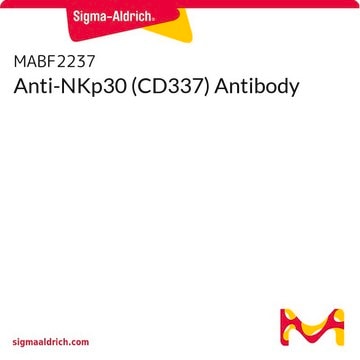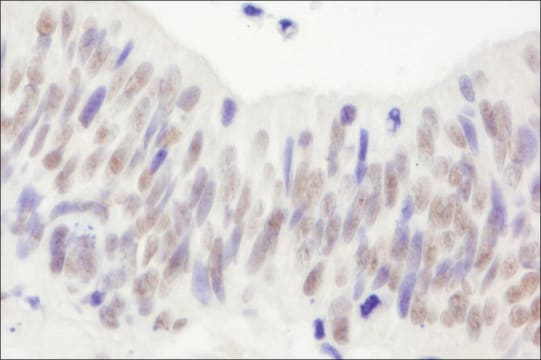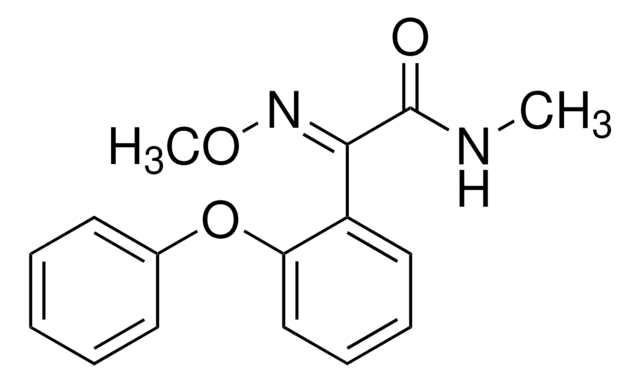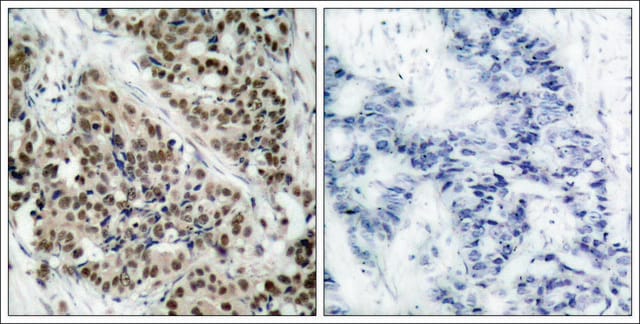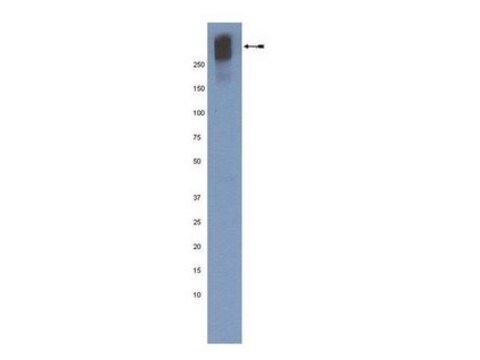MABE1878
Anti-CNOT6 Antibody, clone Y6206
About This Item
Prodotti consigliati
Origine biologica
mouse
Livello qualitativo
Coniugato
unconjugated
Forma dell’anticorpo
purified antibody
Tipo di anticorpo
primary antibodies, primary antibodies
Clone
Y6206, monoclonal
PM
calculated mol wt 63.3 kDa
observed mol wt ~62 kDa
Purificato mediante
using protein G
Reattività contro le specie
mouse, human
Confezionamento
antibody small pack of 100 μg
tecniche
western blot: suitable
Isotipo
IgG2bκ
Sequenza dell’epitopo
N-terminal half
N° accesso ID proteina
N° accesso UniProt
Condizioni di spedizione
ambient
modifica post-traduzionali bersaglio
unmodified
Informazioni sul gene
human ... Cnot6(57472)
Descrizione generale
Specificità
Immunogeno
Applicazioni
Evaluated by Western Blotting in HepG2 cell lysate.
Western Blotting Analysis: A 1:1,000 dilution of this antibody detected CNOT6 in HepG2 cell lysate.
Tested Applications
Western Blotting Analysis: A 1:1,000 dilution from a representative lot detected CNOT6 in lysates from Mouse embryonic stem cells and DLD-1 cells.
Western Blotting Analysis: A representative lot detected CNOT6 in Western Blotting applications (Ito-Kureha, T., et al. (2020). Nat Commun.11(1):6169; Otsuka, H., et al. (2020). Biochimie.;174:49-56; Mostafa, D., et al. (2020). RNA Biol.;17(3):403-416; Zukeran, A., et al. (2016). Biochem Biophys Res Commun. 474(2):233-239; Takahashi, A., et al. (2015). Cell Rep. 13(12):2756-67).
Note: Actual optimal working dilutions must be determined by end user as specimens, and experimental conditions may vary with the end user
Stato fisico
Stoccaggio e stabilità
Altre note
Esclusione di responsabilità
Codice della classe di stoccaggio
12 - Non Combustible Liquids
Classe di pericolosità dell'acqua (WGK)
WGK 1
Punto d’infiammabilità (°F)
Not applicable
Punto d’infiammabilità (°C)
Not applicable
Certificati d'analisi (COA)
Cerca il Certificati d'analisi (COA) digitando il numero di lotto/batch corrispondente. I numeri di lotto o di batch sono stampati sull'etichetta dei prodotti dopo la parola ‘Lotto’ o ‘Batch’.
Possiedi già questo prodotto?
I documenti relativi ai prodotti acquistati recentemente sono disponibili nell’Archivio dei documenti.
Il team dei nostri ricercatori vanta grande esperienza in tutte le aree della ricerca quali Life Science, scienza dei materiali, sintesi chimica, cromatografia, discipline analitiche, ecc..
Contatta l'Assistenza Tecnica.
